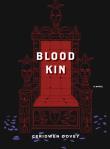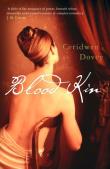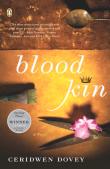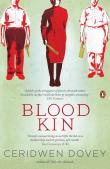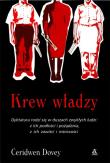AustLit
Latest Issues
AbstractHistoryArchive Description
'A chef, a portraitist and a barber are taken hostage in a coup to overthrow their boss, the president of a nameless country. They are held captive in a palatial retreat in the mountains high above the capital city. Meanwhile, the chef's daughter, the portraitist's pregnant wife and the barber's lover watch their men from the shadows – for in such precarious times, intimate relationships are as dangerous as political ones. As the old order falls, so does the veil that hides the truth about the secret passions of these men and women.
'Drawing her readers masterfully towards the novel's devastating climax, Ceridwen Dovey reveals how humanity's most atavistic impulses – vanity, vengeance and greed – seethe, relentlessly, just beneath the surface of everyday life. '
Publication Details of Only Known VersionEarliest 2 Known Versions of
Works about this Work
-
South African Literary Cartographies : A Post-Transitional Palimpsest
2013
single work
criticism
— Appears in: Ariel , January vol. 44 no. 1 2013; (p. 25-44)'This article investigates three South African novels in an attempt to map the movement between transitional cultural production and post-transitional literature of the present. I briefly outline Phaswane Mpe's Welcome to our Hillbrow (2001) as a formative text of the South African transitional period before discussing Kgebetli Moele's Room 207 (2006) and Ceridwen Dovey's Blood Kin (2007) as post-transitional texts. These novels all circle around issues of place and space, while also revealing the shifts in South African cultural history, as they comprise a set of related perspectives that inscribe meaning across times and spaces. I argue that a palimpsestic reading of this fiction opens up the possibility of reconceptualizing the relationship between space, place, and transnational connectivity. Each of the three texts under discussion writes the space of the city as a type of situated transnationalism where the local and the global exist as coeval discourses of signification. The fecundity of a palimpsestic reading lies in the revelation of how one transitional experience is already present in another. By inscribing one discursive act over another, the ruptures and continuities between textualizations reveal a wealth of imaginaries that, I argue, define the idea of post-transitional South African literature. But perhaps most importantly, the post-transitional can be read as a palimpsestic concept itself, much like the fiction explored in this article, in that it enables a reading of the new in a way in which the layers of the past are still reflected through it. Rather than moving in a temporal linear fashion, post-transitional literature creates a palimpsest in which we can read the imaginaries circulating through and shaping South African cultural formations today.'
Source: Abstract.
-
Kernels of Dark Possibility
2008
single work
review
— Appears in: The Australian Literary Review , February vol. 3 no. 1 2008; (p. 24)
— Review of Luck in the Greater West 2007 single work novel ; Pickle to Pie 2007 single work novel ; Me, Antman and Fleabag 2006 selected work short story ; Blood Kin 2007 single work novel
-
Kernels of Dark Possibility
2008
single work
review
— Appears in: The Australian Literary Review , February vol. 3 no. 1 2008; (p. 24)
— Review of Luck in the Greater West 2007 single work novel ; Pickle to Pie 2007 single work novel ; Me, Antman and Fleabag 2006 selected work short story ; Blood Kin 2007 single work novel -
South African Literary Cartographies : A Post-Transitional Palimpsest
2013
single work
criticism
— Appears in: Ariel , January vol. 44 no. 1 2013; (p. 25-44)'This article investigates three South African novels in an attempt to map the movement between transitional cultural production and post-transitional literature of the present. I briefly outline Phaswane Mpe's Welcome to our Hillbrow (2001) as a formative text of the South African transitional period before discussing Kgebetli Moele's Room 207 (2006) and Ceridwen Dovey's Blood Kin (2007) as post-transitional texts. These novels all circle around issues of place and space, while also revealing the shifts in South African cultural history, as they comprise a set of related perspectives that inscribe meaning across times and spaces. I argue that a palimpsestic reading of this fiction opens up the possibility of reconceptualizing the relationship between space, place, and transnational connectivity. Each of the three texts under discussion writes the space of the city as a type of situated transnationalism where the local and the global exist as coeval discourses of signification. The fecundity of a palimpsestic reading lies in the revelation of how one transitional experience is already present in another. By inscribing one discursive act over another, the ruptures and continuities between textualizations reveal a wealth of imaginaries that, I argue, define the idea of post-transitional South African literature. But perhaps most importantly, the post-transitional can be read as a palimpsestic concept itself, much like the fiction explored in this article, in that it enables a reading of the new in a way in which the layers of the past are still reflected through it. Rather than moving in a temporal linear fashion, post-transitional literature creates a palimpsest in which we can read the imaginaries circulating through and shaping South African cultural formations today.'
Source: Abstract.
Awards
- 2008 shortlisted Dylan Thomas Prize
- 2008 shortlisted Australia-Asia Literary Award
- 2008 shortlisted Commonwealth Writers Prize — Africa — Best First Book
- 2006-2007 shortlisted John Llewellyn Rhys Prize

